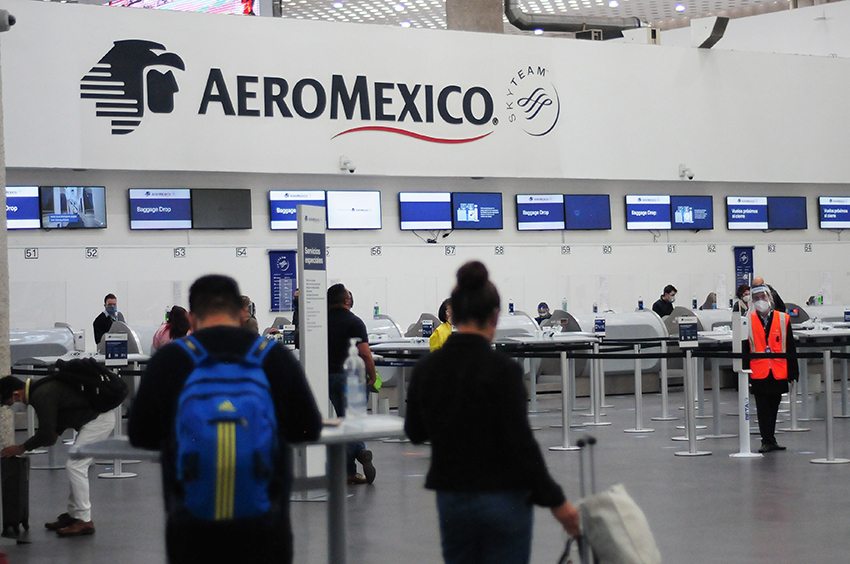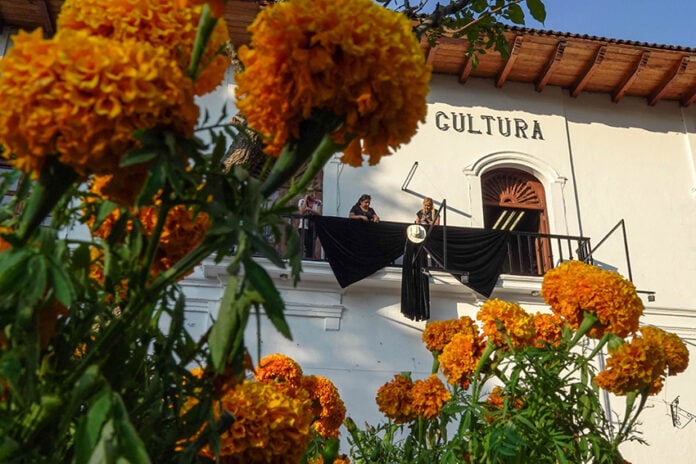Mexico confronted a turbulent week between Nov. 3 and Nov. 7, as the assassination of a prominent anti-crime mayor sparked nationwide debate over security policy. Meanwhile, President Claudia Sheinbaum’s government navigated diplomatic tensions, defended Mexican sovereignty against reports of potential U.S. military intervention and addressed an unprecedented personal security incident. The period also saw congressional approval of a new federal budget, economic disruptions in key industries, and both triumphs and challenges in Mexico’s tourism sector.
Didn’t have a chance to read every article this week? Here’s what you missed.
Security crisis in Michoacán dominates national conversation
One of the week’s most consequential story unfolded in Michoacán, where outspoken anti-crime mayor Carlos Alberto Manzo Rodríguez was assassinated during a Day of the Dead celebration in Uruapan on Saturday night. The 40-year-old independent mayor, known for his aggressive stance against organized crime, died from seven gunshots while attending the Festival de las Velas in the city’s main square.
Manzo’s murder triggered widespread protests across Michoacán, with more than 10,000 people marching through Uruapan demanding justice.
The killing also drew international attention, with U.S. Deputy Secretary of State Christopher Landau offering “deepened security cooperation” to combat organized crime on both sides of the border.
Authorities later identified an assassin and confirmed that multiple people participated in the crime, which investigators believe is related to the Jalisco New Generation Cartel.

President Sheinbaum addressed the tragedy at her Monday morning press conference, promising “no impunity.” By Tuesday, she unveiled the Plan Michoacán, a comprehensive strategy focusing on security and justice, economic development, and education and culture for peace.
Following the crime, Grecia Quiroz, the slain mayor’s widow, was appointed by the Michoacán state legislature to serve as Uruapan’s new mayor, vowing to continue her husband’s anti-crime crusade through the Hat Movement, a political organization he founded.
The week also witnessed tragedy beyond Michoacán, in the after an explosion and fire at a Waldo’s discount store in Hermosillo, Sonora, killed at least 23 people. Preliminary investigations suggested the fire originated in an internal transformer following power surges, with state officials revealing the store had been operating with a unapproved civil protection program.
US sovereignty concerns and diplomatic tensions
The week saw escalating tensions over Mexican sovereignty as NBC News reported that the Trump administration has begun planning a “potential mission” involving U.S. troops and intelligence officers targeting drug cartels on Mexican soil, potentially including drone strikes. President Sheinbaum firmly rejected any possibility of U.S. military intervention, asserting that Mexicans are “united against any interference.”
Report: Trump administration is planning a manned mission to fight cartels in Mexico
At her Wednesday press conference, Sheinbaum declared that “Mexico is nobody’s piñata” while addressing a range of U.S. government actions affecting Mexico, including tariffs, cattle import restrictions due to screwworm concerns, and flight route revocations. The president emphasized Mexico’s better position compared to other countries, noting that around 80% of Mexican exports to the U.S. remain tariff-free under USMCA.
Diplomatic challenges extended beyond Washington. Peru severed diplomatic ties with Mexico on Monday after Mexico granted asylum to former Peruvian Prime Minister Betssy Chávez at its embassy in Lima. The situation escalated further when Peru’s Congress declared Sheinbaum persona non grata on Thursday.
President faces unprecedented personal security incident
In an incident that sparked national conversation about sexual harassment, President Sheinbaum was inappropriately touched by an apparently inebriated man while walking in Mexico City’s historic center on Tuesday. Video footage showed the man placing his hands near or on the president’s breasts and attempting to kiss her. The 33-year-old suspect was arrested and charged with allegedly assaulting other women the same day.
Sheinbaum filed a criminal complaint, framing her decision as standing in solidarity with Mexican women who experience similar harassment. She also announced that her government would review sexual harassment laws nationwide and launch an anti-harassment campaign. However, opposition politicians accused Sheinbaum of using the incident as a political distraction from violence in Michoacán.
Economic and budgetary developments
Congress took major fiscal action as Morena and its allies passed the federal government’s 10.2 trillion-peso (US $547.8 billion) budget for 2026, representing a 5.9% increase over 2025. The spending plan allocates 987 billion pesos to welfare programs, an 18% increase from this year. Opposition deputies criticized security spending cuts amid ongoing violence.
In a major milestone for Mexican aviation and capital markets, Aeroméxico executed an initial public offering on the New York Stock Exchange and returned to the Mexican Stock Exchange on Thursday, raising around US $300 million. The IPO comes more than five years after the airline filed for bankruptcy and signals improving conditions for Mexican companies seeking to go public.

Manufacturing, meanwhile, faced disruption as Honda halted production at its Celaya, Guanajuato, plant due to a semiconductor shortage affecting its supply of Nexperia chips from China.
Mexico’s central bank cut its benchmark interest rate by 25 basis points to 7.25% on Thursday. Banxico struck a cautious tone about future easing, citing economic weakness and declining to offer guidance beyond December.
More positive economic news emerged as three Mexican states led national growth: Mexico State, Nuevo León and Yucatán each recorded 17 consecutive quarters of economic expansion. Despite challenges from U.S. tariffs and reduced infrastructure spending, 19 of Mexico’s 32 federal entities experienced year-on-year growth in the second quarter of 2025.
Water security improves dramatically
In welcome environmental news following months of crisis warnings, central Mexico’s Cutzamala System of dams and reservoirs reached above 97% capacity, its highest level in 10 years. The dramatic turnaround from historic lows of 30% capacity in June 2024 resulted from record rainfall throughout 2025, with water management specialists projecting that current storage levels should ensure supply stability through 2027. The system supplies water to the Mexico City metropolitan area and Toluca.
Tourism sector successes and stumbling blocks
Mexico tourism sector had a solid month despite bumps in the road. In Cancún, sargassum made an unexpected late-season return to Cancún beaches while nearby in Tulum, the federal Tourism Ministry reversed Tulum mayor’s beach access restrictions, re-establishing free access after the mayor had prohibited visitors from bringing food, drinks and umbrellas.
Mazatlán’s cruise ship season ramped up with dozens of upcoming arrivals scheduled for November and 21 for December, though experts warn the influx doesn’t fully compensate for tourism losses from security concerns that led to a 25% drop in occupancy. Meanwhile, international sporting tourism received a boost as the PGA’s World Wide Technology Championship teed off at the Tiger Woods-designed El Cardonal course in Los Cabos.
Cultural and scientific achievements
On the cultural front, Mexican novelist Gonzalo Celorio won the 2025 Cervantes Prize, Spanish literature’s highest honor. The 77-year-old writer becomes the seventh Mexican to receive the award, making Mexico the Latin American nation with the most Cervantes laureates.
Mexican writer Gonzalo Celorio wins Spain’s Cervantes Prize for lifetime achievement in literature
And in marine science news that captured international headlines, researchers documented killer whales in the Gulf of California hunting young great white sharks. The phenomenon, published in the journal Frontiers in Marine Science, showcases how Mexican species are adapting to changing conditions.
Looking ahead
As the country moves forward, President Sheinbaum faces the delicate task advancing Mexican security whle both defending national sovereignty and maintaining productive relations with the United States, whose economic and security cooperation remains vital to Mexican interests. As organized crime remains entrenched in areas like Michoacán, Sheinbaum is doubling down on a comprehensive approach that emphasizes social development over militarized responses.
Economic indicators present a mixed picture: While Aeroméxico’s successful IPO and sustained state-level growth suggest underlying strengths, trade disruptions and cautious central bank messaging highlight vulnerabilities.
Ultimately, the week demonstrated Mexico’s capacity to navigate multiple crises while pursuing ambitious development goals. Success will depend on the government’s ability to deliver tangible security improvements and maintain international partnerships amid growing tensions.
Mexico News Daily
This story contains summaries of original Mexico News Daily articles. The summaries were generated by Claude, then revised and fact-checked by a Mexico News Daily staff editor.
